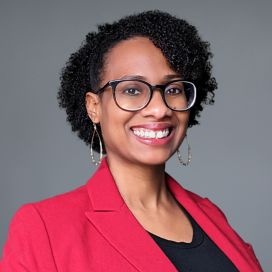American Cancer Society’s Efforts to Advance Health Equity

Problem
Cancer is a disease that can affect anyone, but some communities face additional obstacles to preventing, treating, and surviving cancer.
The American Cancer Society (ACS) and the American Cancer Society Cancer Action Network (ACS CAN) received funding from the Robert Wood Johnson Foundation to advance a culture of health by intentionally integrating health equity into the core functions of the organization and in selected communities. This work is intended to further ACS/ACS CAN’s goal of ensuring that everyone has a fair and just opportunity to prevent, diagnose, treat, and survive cancer, regardless of income, race, ethnicity, sexual orientation, gender identity, disability status, or location. As part of this effort, ACS/ACS CAN is implementing health equity training, producing communications products and resources, and funding cross-sector teams to tackle social determinants of health linked to cancer, such as food insecurity and financial toxicity, and reduce medical mistrust in selected communities.
Solution
NORC is leading a mixed-methods process and outcome evaluation to assess ACS/ACS CAN’s efforts to advance health equity.
NORC’s mixed-methods process and outcome evaluation will assess ACS/ACS CAN’s efforts to integrate health equity into the organization's core functions and in selected communities. Using surveys, focus groups, interviews, and document reviews, NORC is evaluating the extent to which ACS is effectively advancing health equity as a shared value among organizational staff and community leaders. Using culturally responsive evaluation, our work keenly focuses on understanding intended audiences’ perceptions of equity, including racial inequity and biases that influence efforts to advance equity and a culture of health.
The first phase of the project and evaluation concluded in the spring of 2021. NORC is currently evaluating the second phase of this work, which includes:
- Assessing the reach and impact of communications and digital products with a health equity focus
- Evaluating the effectiveness of additional training on health equity knowledge, attitudes, beliefs, and actions
- Measuring progress in reducing medical mistrust for two new cohorts of community projects
The community project teams for the second round comprise ACS, FQHC, and community-based organization staff, and the goals are to reduce medical mistrust and improve colorectal cancer screening rates in selected communities. NORC will produce another evaluation of this work in the spring of 2024.
Result
We found that ACS/ACS CAN’s efforts increased staff knowledge, attitudes, and skills about health equity.
Based on findings from the first phase of the evaluation, finalized in the spring of 2021, ACS/ACS CAN’s efforts had significant reach and impact. Namely, ACS’s health equity meetings, webinars, and training increased knowledge, attitudes, and beliefs about health equity and social determinants of health and motivated ACS staff to act to advance health equity in their role.
ACS/ACS CAN served as powerful conveners of cross-sector teams tackling health equity and social determinants of health in selected communities. The evaluation also revealed that the community projects were successful in bringing together partners from diverse sectors that are actively engaged in their communities to advance health equity. The flexible program structure allowed for activities to be adapted to leverage resources to meet community needs, even in the face of disruptions from the COVID-19 pandemic.
Findings from phase II of the evaluation are forthcoming at the end of the second phase of this work in 2024.
Learn More About the Study
Related Tags
Project Leads
-
Sarah Davis Redman
Principal Research ScientistProject Director -
Petry S. Ubri
Senior Research ScientistSenior Staff










